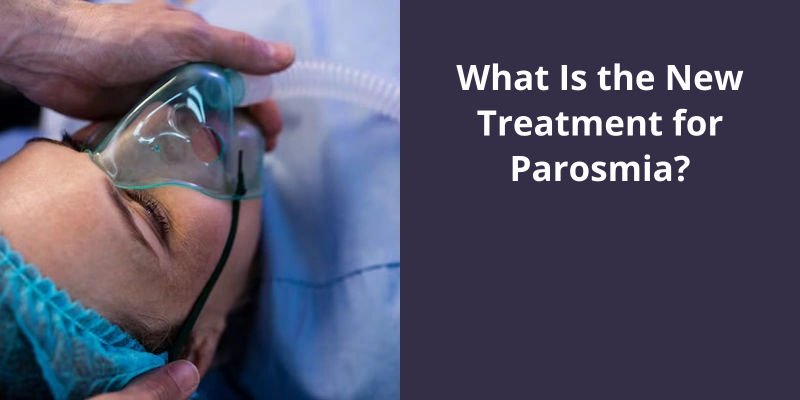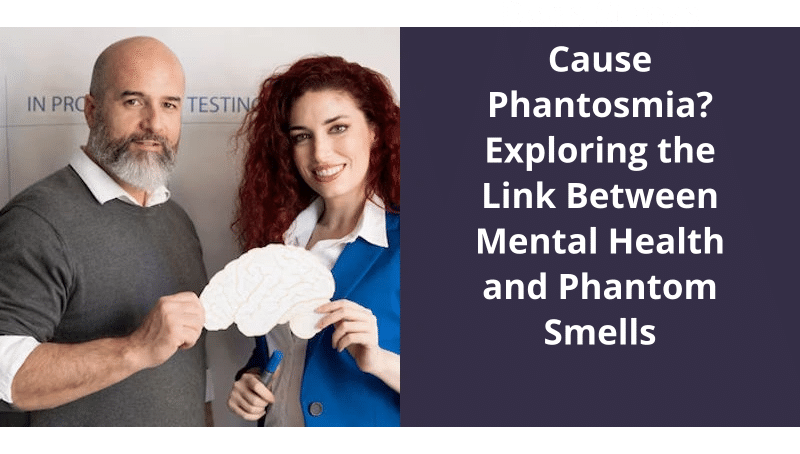The COVID-19 pandemic has brought about a multitude of challenges, some of which have long-lasting effects on the health of those who’ve contracted the virus. One such effect is the loss of smell, or anosmia, which can persist for months after recovery from the illness. Another related condition that’s emerged is parosmia, where smells are distorted and unpleasant. This change in the sense of smell can affect an individual's quality of life, leading to a decreased appetite, social isolation, and depression. Traditional treatments for these conditions have had limited success, leading researchers to seek out alternative therapies. Recently, a team of researchers led by Dr. Jayant Pinto and Dr. Royya Modir of the University of Chicago has tested a new treatment for long-term COVID-19-related smell loss, using injections of platelet-rich plasma derived from a patient's own blood. The results of their trial are promising, with patients who received the treatment being 12.5 times more likely to improve than those who received placebo injections. In this article, we will delve deeper into this new treatment and it’s potential to alleviate the symptoms of long-term smell loss and parosmia.

What Is the Prognosis for Parosmia?
Parosmia is a condition that disrupts the sense of smell, causing an individual to perceive certain scents as unpleasant or offensive. This condition can be caused by a variety of factors, including infections, head injuries, and exposure to certain chemicals. The prognosis for parosmia can vary widely depending on the underlying cause of the condition and the severity of symptoms.
In some cases, parosmia may be a transient condition that resolves on it’s own over time. This is particularly true when the condition is caused by a temporary infection or inflammation in the nasal passages. This may occur when the nasal passages or olfactory nerves have been damaged by trauma or disease.
Treatment for parosmia typically involves identifying and addressing the underlying cause of the condition. For example, individuals with parosmia caused by a sinus infection may be treated with antibiotics or other medications to clear the infection. Individuals with parosmia caused by a head injury may undergo physical therapy or other treatments to promote healing and recovery.
In some cases, medications may be prescribed to help manage the symptoms of parosmia. These medications may include steroids, antihistamines, or other drugs that help to reduce inflammation or block certain smells. In some cases, surgical intervention may be necessary to address the underlying cause of the condition.
While some individuals may experience permanent changes to their sense of smell, many others are able to fully recover their sense of smell and enjoy the scents and flavors of the world around them once again. With proper diagnosis and treatment, most individuals with parosmia can expect to achieve a full and complete recovery.
Can You Get Over Parosmia?
Parosmia is a condition that causes people to experience distorted smells. This can be incredibly frustrating and can make enjoying food or even life, in general, very difficult. Fortunately, in many cases, people are able to get over parosmia without any permanent damage.
The key to getting over parosmia is to identify the underlying cause. There are many different things that can cause this condition, including infections, head injuries, and certain medications. Treating the underlying cause can be a very effective way of getting rid of the distortion.
This can include things like physical therapy, surgery, or even medication. While these treatments can be effective, they’re often more invasive and come with their own set of risks.
One of the most important things that people can do when dealing with parosmia is to be patient. Recovering from this condition can take time, and it may be frustrating to feel like progress is slow. However, with the right care and treatment, most people do eventually recover.
If you’re struggling with parosmia, it’s important to seek out professional help. A doctor or other healthcare provider can help you identify the underlying cause of your condition and develop a treatment plan that’s tailored to your needs. With the right care and support, there’s no reason that you cant get over parosmia and enjoy life to the fullest.
Source: Parosmia (Distorted Smell): Causes, Symptoms & Treatment
It’s clear that those with parosmia may struggle with enjoying food, but certain flavors and ingredients can help reset the mouth and make meals more enjoyable. In addition to sweet, sour, and salty foods, there are other ways to fortify meals and add flavor without aggravating parosmia symptoms. For example, adding a drizzle of olive oil over pasta or incorporating ground seeds or nuts into a smoothie or bowl of porridge can be beneficial.
What Foods Are Good for Parosmia?
For those with parosmia, the sense of smell can be distorted and disruptive when it comes to food. However, there are some foods that can help reset the mouth and make the experience of eating more enjoyable. Sweet, sour, and salty foods can all be beneficial for those with parosmia, as they stimulate the taste buds in a unique way. A small piece of dark chocolate or a slice of fresh lemon may be all it takes to reset the palate and help alleviate the strange sensations that come with parosmia.
One option is to add a drizzle of olive oil over pasta or a salad. Not only does olive oil add flavor and texture to a dish, but it can also help digestion and absorption of nutrients, which is especially important for people with taste and smell impairments.
Ground seeds or nuts can also be an excellent addition to meals for those with parosmia. They add a crunchy texture and a source of healthy fats and protein. Adding them to a smoothie or bowl of porridge can also help mask any unpleasant tastes or smells that may be present in the food.
It’s also important to stick to foods that are nutrient-dense and highly flavorful. This means choosing foods that are rich in vitamins, minerals, and antioxidants, as well as those that have natural flavor enhancers like garlic and herbs. Additionally, it’s important to avoid foods that are overly processed or high in salt, sugar, or fat. These can’t only exacerbate the symptoms of parosmia but can also lead to other health problems.
Ultimately, the best foods for those with parosmia will vary depending on the individual and their specific symptoms. It’s important to experiment with different foods and flavors to find what works best for each person. Additionally, seeking the advice of a registered dietician or health professional can help ensure that nutritional needs are being met and that meals are both enjoyable and beneficial for those with parosmia.
While medication can be a useful tool in managing parosmia symptoms, there’s ongoing research to explore alternative treatments. For those experiencing this condition, it’s important to work closely with a healthcare provider to determine the best course of treatment for their individual needs.
Is There Any Treatment for Parosmia?
Unfortunately, parosmia remains a difficult condition to treat as there are still many unknowns about the underlying causes of this disorder. Some people may find relief from their parosmia symptoms with medication, but it’s important to note that these treatments aren’t guaranteed to work for everyone.
One medication that’s shown promise in treating parosmia is phenytoin. This anti-seizure medication is thought to work by stabilizing the nerves in the nose that transmit smell signals to the brain. However, it’s important to note that phenytoin can have side effects, such as dizziness and drowsiness, so it should only be taken under the supervision of a doctor.
Other medications may also be prescribed to treat parosmia, such as nasal steroids or antibiotics, depending on the underlying cause of the condition. However, it’s important to note that there’s currently no definitive cure for parosmia, and more research is needed to understand the underlying causes and effective treatment options.
In addition to medication, there are other approaches that may help manage parosmia symptoms, such as avoiding triggers that exacerbate the condition, such as certain foods or perfumes. Some people may also find relief through lifestyle changes, such as quitting smoking or reducing stress levels.
Ultimately, the best course of treatment for parosmia will depend on the individual and their specific symptoms. It’s important to work closely with a healthcare professional to develop a personalized treatment plan that addresses your unique needs and concerns, and to be open to trying different approaches until you find what works best for you.
Conclusion
The discovery of a new and effective treatment for parosmia is a significant step forward in the fight against COVID-19-related smell loss. Patel's team's research on using injections of platelet-rich plasma has shown promising results, with patients receiving the treatment experiencing significant improvement compared to those who received placebo injections. This breakthrough paves the way for further advancements not only in treating parosmia but also other long-term side effects of COVID-19. As scientists and researchers continue to work towards developing more effective treatments and cures, we can remain hopeful that we will overcome the challenges presented by the pandemic and emerge stronger than ever before.





